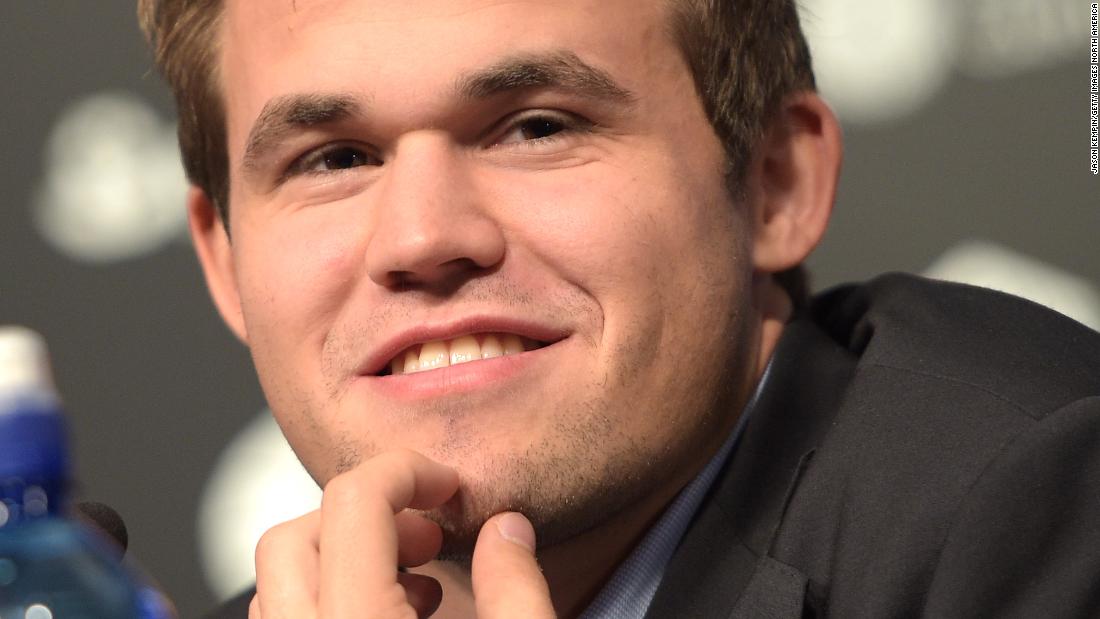Sorry, nothing in cart.
Magnus Carlsens: s’My emotions are usually outside my body and thats’s not what you usually connect to a chess players.’
Magnus Carlsen: ‘My emotions are usually outside my body and that’s not what you usually connect to a chess player.’
Magnus Carlsen: ‘My emotions are usually outside my body and that’s not what you usually connect to a chess player.’. Greatness cannot be achieved without sacrifice. While it is the fire that burns inside that fuels the brilliance, the pursuit for perfection can also torment, turning relationships to ashes and niggling at the soul. The gifted can be loved and disliked. They can achieve immortality but still be flawed. They are, after all, human. But, ultimately, their extraordinary talent overshadows everything.
As Michael Jordan says in ‘The Last Dance,’ the wildly popular 10-part docuseries covering the 1997-98 Chicago Bulls season: “Winning has a price and leadership has a price.”
Magnus Carlsen had just been introduced to chess by his father, Henrik, when Jordan was securing his first hat trick of NBA championships with the Bulls in the early 1990s. Still progressing through elementary school, and some years away from being described as the “Mozart of Chess” by the Washington Post, the young Carlsen never watched Jordan’s games but, nevertheless, collected NBA cards. “Everybody knew who Jordan was,” Carlsen tells CNN Sport.

Much like Jordan, it is a loathing for losing that powers Carlsen’s merciless drive. The infrequency of the defeats does not soften the blow. In last month’s Magnus Carlsen Invitational, an online tournament with a record total prize fund of $250,000, he lost to 16-year-old rising star Alireza Firouzja. “It pi**ed me off a lot,” admits Carlsen.
And on his way to beating Ding Liren, he turned the air blue as his frustrations boiled over. He is, he says, “more human than most.”
“When I blundered in one game there’d be a bunch of expletives coming from my mouth; I think that’s a good thing,” Carlsen says, believing that a player’s freedom to be expressive makes rapidplay online chess, games which are normally completed in under an hour, more appealing to the many than the classical format.
“It’s real. People have these instant reactions, which you cannot actually have when you’re at the board,” he says. “There must be room to be yourself and I’m a super competitive person, and when I mess up in a way I shouldn’t, that bites at me and there’s really nothing wrong with expressing that. It’s just part of who I am.
“You can like it, or you don’t like it. It’s authentic and that’s the most important thing.
“People have been saying that’s a good and bad thing about me. My emotions are usually outside my body. That’s not what you usually connect to a chess player in general, but that’s the way that I am.”
The first event was the Carlsen Invitational, a final reportedly watched by an online audience calculated at over 115,000, and the second the Lindores Abbey Challenge, which is happening now.
His aim, Carlsen says, is to “ensure chess players can have a livelihood,” while also giving chess fans “something to look forward to.”
He would be surprised, he says, were he to play over-the-board chess this year. “I suspect next year there will be some sort of return to normality, but who knows, I’m not banking on it,” says Carlsen.
Perhaps it will come as no surprise to hear him call his eponymous 16-day online tournament, which involved eight top-ranked players, as an “instant hit,” but he has not been the only one to praise the format. Earlier this month UK newspaper, The Guardian, wrote that the tournament “proved a revelation,” magnifying mistakes and intensifying the pressure.
It is also significant that the Norwegian describes his win over Hikaru Nakamara, the world’s top-rated blitz player, in the final as his most satisfying victory for a while.


Leave a Reply